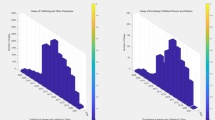Abstract
The Declaration of Istanbul on Organ Trafficking and Transplant Tourism was adopted at an international meeting held in 2008. The Declaration has been published globally and consists of a preamble, a set of principles and a series of proposals to improve the ethics and expand the benefits of the international organ transplantation endeavor. To promote and monitor the implementation of the Declaration, a Declaration of Istanbul Custodian Group (DICG) has been created. The DICG has provided support for official efforts to ban the sale of organs, restrict transplant tourism and prosecute those who persist in violating the law. Substantial progress has been made thus far in countries that have been the source of transplant tourists and in countries that have been the source of donor organs for trafficking. In China, however, the use of organs from executed prisoners for transplantation purposes continues despite widespread condemnation of this practice.
This is a preview of subscription content, access via your institution
Access options
Subscribe to this journal
Receive 12 print issues and online access
$209.00 per year
only $17.42 per issue
Buy this article
- Purchase on Springer Link
- Instant access to full article PDF
Prices may be subject to local taxes which are calculated during checkout
Similar content being viewed by others
References
[No authors listed]. Legal and illegal organ donation. Lancet 369, 1901 (2007).
Scheper-Hughes, N. The global traffic in human organs1. Curr. Anthropol. 41, 191–224 (2000).
World Health Assembly. Fifty-seventh World Health Assembly WHA57.18: human organ and tissue transplantation. WHO [online], (2004).
Steering Committee of the Istanbul Summit. Organ trafficking and transplant tourism and commercialism: the Declaration of Istanbul. Lancet 372, 5–6 (2008).
The Declaration of Istanbul on Organ Trafficking and Transplant Tourism. The Declaration of Istanbul on Organ Trafficking and Transplant Tourism [online], (2008).
The Declaration of Istanbul on Organ Trafficking and Transplant Tourism [online],
Danovitch, G. M. From Helsinki to Istanbul: what can the transplant community learn from experience in clinical research? Nephrol. Dial. Transplant. 23, 1089–1092 (2008).
Executive summary of the minutes OPTN/UNOS board of directors meeting [online], (2009).
World Health Assembly. Sixty-Third World Health Assembly WHA63.22: human organ and tissue transplantation. WHO [online], (2010).
Ambaqtsheer, F. & Weimar, W. A criminological perspective: why prohibition of organ trade is not effective and how the Declaration of Istanbul can move forward. Am. J. Transplant. 12, 571–575 (2012).
Glazier, A. K. & Delmonico, F. L. The Declaration of Istanbul is moving forward by combating transplant commercialism and trafficking and by promoting organ donation. Am. J. Transplant. 12, 515–516 (2012).
The Declaration of Istanbul Custodian Group. Thinking of buying a kidney? Stop. The Declaration of Istanbul on Organ Trafficking and Transplant Tourism [online],
Delmonico, F. L., Domínguez-Gil, B., Matesanz, R. & Noel, L. A call for government accountability to achieve national self-sufficiency in organ donation and transplantation. Lancet 378, 1414–1418 (2011).
[No authors listed]. The Madrid resolution on organ donation and transplantation: national responsibility in meeting the needs of patients, guided by the WHO principles. Transplantation 91 (Suppl. 11), S29–S31 (2011).
Cabral, E. I. (Secretary of Health). Administrative order No. 2010–0018. Subject: revised national policy on living non-related donation and transplantation and its implementing structure amending for the purpose administrative order No. 2008-0004-A. Republic of the Philippines Department of Health [online], (2010).
Instituto Nacional de Salud Subdirection Red Nacional de Laboratorios Coordinacion Nacional Red Donacion y Transplnates. Informe Red Donacion y Transplantes 2010. Bogatá D. C., Columbia (2011).
Israel transplant law—Organ Transplant Act, 2008. The Declaration of Istanbul on organ trafficking and transplant tourism [online], (2008).
Even, D. Dramatic increase in organ transplants recorded in Israel in 2011. Haaretz.com [online], (2012).
The Peninsula. International organ donation news—Doha, UAE—aims to promote organ donation. Donate Life Organ and Tissue Donation Blog [online], (2009).
Facts and details. Organ transplants in Japan: laws, cultural aversion, overseas operations and gangsters [online],
Malaysia committed to eradicate human organ trafficking: Liow. MYsinchew.com [online], (2011).
Danovitch, G. M., Shapiro, M. E. & Lavee, J. The use of executed prisoners as a source of organ transplants in China must stop. Am. J. Transplant. 11, 426–428 (2011).
Caplan, A. L., Danovitch, G. M., Shapiro, M., Lavee, J. & Epstein, M. Time for a boycott of Chinese science and medicine pertaining to organ transplantation. Lancet 378, 1218 (2011).
Sui, W. G. et al. Successful organ donation from brain dead donors in a Chinese organ transplantation center. Am. J. Transplant. 11, 2247–2249 (2011).
Acknowledgements
The authors are Co-Chairs of the Patient Affairs Task Force of the Declaration of Istanbul Custodian Group.
Author information
Authors and Affiliations
Contributions
G. M. Danovitch researched the data for the article, provided a substantial contribution to discussions of content, wrote the article and contributed to review and/or editing of the manuscript before submission. M. Al-Mousawi contributed to review and/or editing of the manuscript before submission.
Corresponding author
Ethics declarations
Competing interests
The authors declare no competing financial interests.
Rights and permissions
About this article
Cite this article
Danovitch, G., Al-Mousawi, M. The Declaration of Istanbul—early impact and future potential. Nat Rev Nephrol 8, 358–361 (2012). https://doi.org/10.1038/nrneph.2012.59
Published:
Issue Date:
DOI: https://doi.org/10.1038/nrneph.2012.59
This article is cited by
-
The rise and decline of Israel’s participation in the global organ trade: causes and lessons
Crime, Law and Social Change (2013)
-
Global initiatives to tackle organ trafficking and transplant tourism
Medicine, Health Care and Philosophy (2013)



